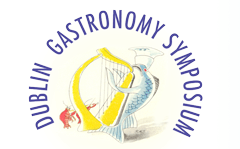Start Date
28-5-2024 3:00 PM
End Date
28-5-2024 3:15 PM
Description
This paper uses gastrocriticism – literary criticism that draws on disciplines such as sociology, anthropology and cultural studies – as a lens to establish the use of food as a symbolic marker of traces, trauma and traditions in the HBO series, The Sopranos. The Sopranos is a story of an Italian-American crime family in which food is uniquely central to the plot: a mob-boss is in therapy due to food-related panic attacks. Food is used in a variety of ways; as a narrative device; as a symbol of greed, power and status; and as a token of ethnic and professional identity. In terms of tradition, the intertextual food tropes in The Sopranos continue the traditions of the classic Hollywood gangster genre, recalling expressions of Italian-American identity, family, esprit-de-corps and power. Trace elements are evident in further exploration of Italian-American identity: food offers insight into the nuances of Italian-American identity, and its evolution as the population becomes more assimilated, contrasting with their recollections of the “old country.” The traumatic premise of the series is uniquely food-related: Tony Soprano enters therapy to address blackouts triggered by the sight of meat. Early in the series Tony faints whilst grilling sausages and in season three, a “flashback” shows us the basis of his neurosis: as a child he witnessed his father punishing a debtor – the owner of Satriale’s Pork Store – by cutting off his fingers. The Sopranos is unique in its depiction and use of food, and this study shows how those depictions reflect traces, traditions and trauma.
Creative Commons License

This work is licensed under a Creative Commons Attribution-NonCommercial-Share Alike 4.0 International License.
DOI
https://doi.org/10.21427/qha5-2r75
Trace, Trauma and Tradition in The Sopranos
This paper uses gastrocriticism – literary criticism that draws on disciplines such as sociology, anthropology and cultural studies – as a lens to establish the use of food as a symbolic marker of traces, trauma and traditions in the HBO series, The Sopranos. The Sopranos is a story of an Italian-American crime family in which food is uniquely central to the plot: a mob-boss is in therapy due to food-related panic attacks. Food is used in a variety of ways; as a narrative device; as a symbol of greed, power and status; and as a token of ethnic and professional identity. In terms of tradition, the intertextual food tropes in The Sopranos continue the traditions of the classic Hollywood gangster genre, recalling expressions of Italian-American identity, family, esprit-de-corps and power. Trace elements are evident in further exploration of Italian-American identity: food offers insight into the nuances of Italian-American identity, and its evolution as the population becomes more assimilated, contrasting with their recollections of the “old country.” The traumatic premise of the series is uniquely food-related: Tony Soprano enters therapy to address blackouts triggered by the sight of meat. Early in the series Tony faints whilst grilling sausages and in season three, a “flashback” shows us the basis of his neurosis: as a child he witnessed his father punishing a debtor – the owner of Satriale’s Pork Store – by cutting off his fingers. The Sopranos is unique in its depiction and use of food, and this study shows how those depictions reflect traces, traditions and trauma.
